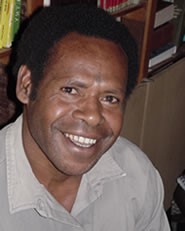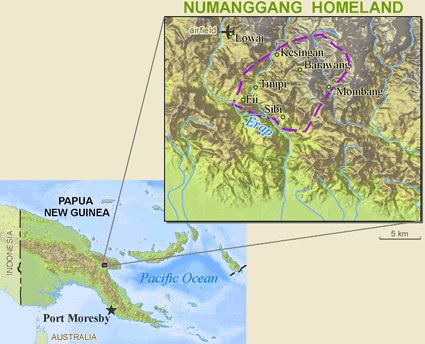The Numanggang people live in twelve villages and six smaller hamlets in Morobe Province on the main island of Papua New Guinea. They practice a type of slash and burn farming, producing mainly taro and yams. Coffee and vanilla beans are important cash crops. A serious concern for the Numanggang is the lack of land for farming. They see a need for both electricity and potable water. They received assistance in installing a water system, but only a little solar or generator electricity is available. The Numanggang people have also benefited from language development by a translation agency, which arrived in 1977, and from home construction by Habitat for Humanity, which arrived in the 1990s.
The major religious influence has been the Lutheran Church, whose missionaries arrived in the late 1920s. The Numanggang people were the first in the area to respond to evangelization by the Lutherans. Most of the people joined the church and a significant impact was made on the Numanggang society. In the 1980s, a cult group arrived and many began following that religion. Followers of the cargo cult often mix this cult's teachings with their indigenous beliefs. The cargo cult involves ancestor worship and appeasement of spirits for material benefit. In the Numanggang worldview, all of life is integrated. Spirit, body, work and religion are inseparable. This perspective is beneficial for Numanggang believers, who incorporate their faith into all aspects of life, but the integrated perspective also fosters cargo cult beliefs.
Scripture Prayers for the Numanggang in Papua New Guinea.
| Profile Source: Anonymous |











